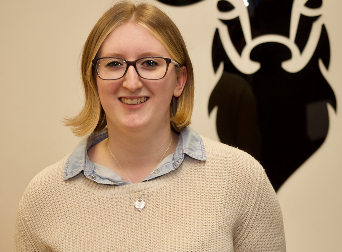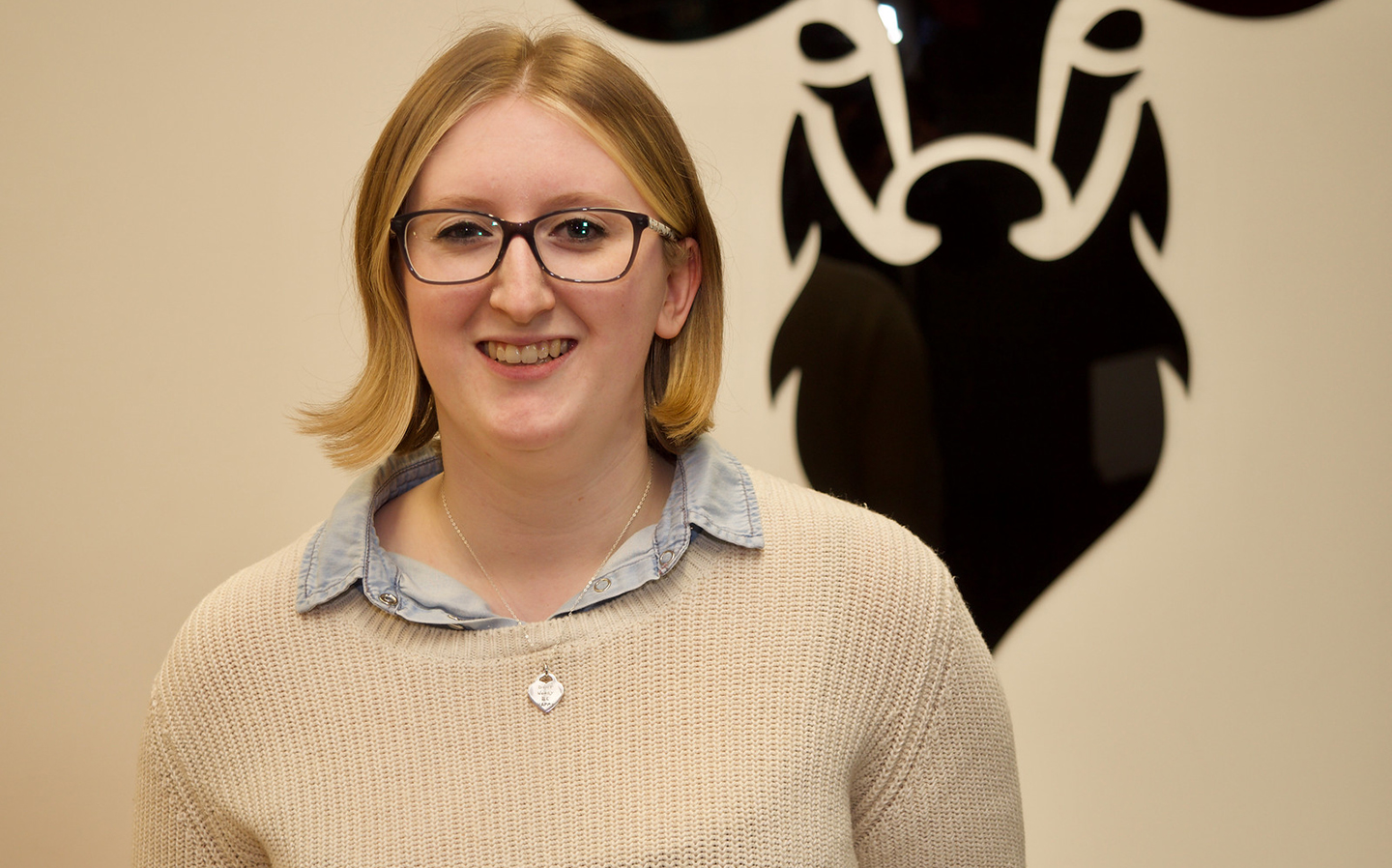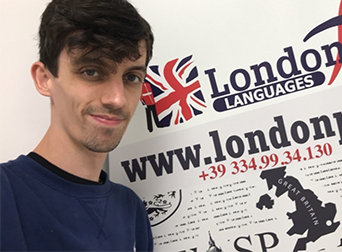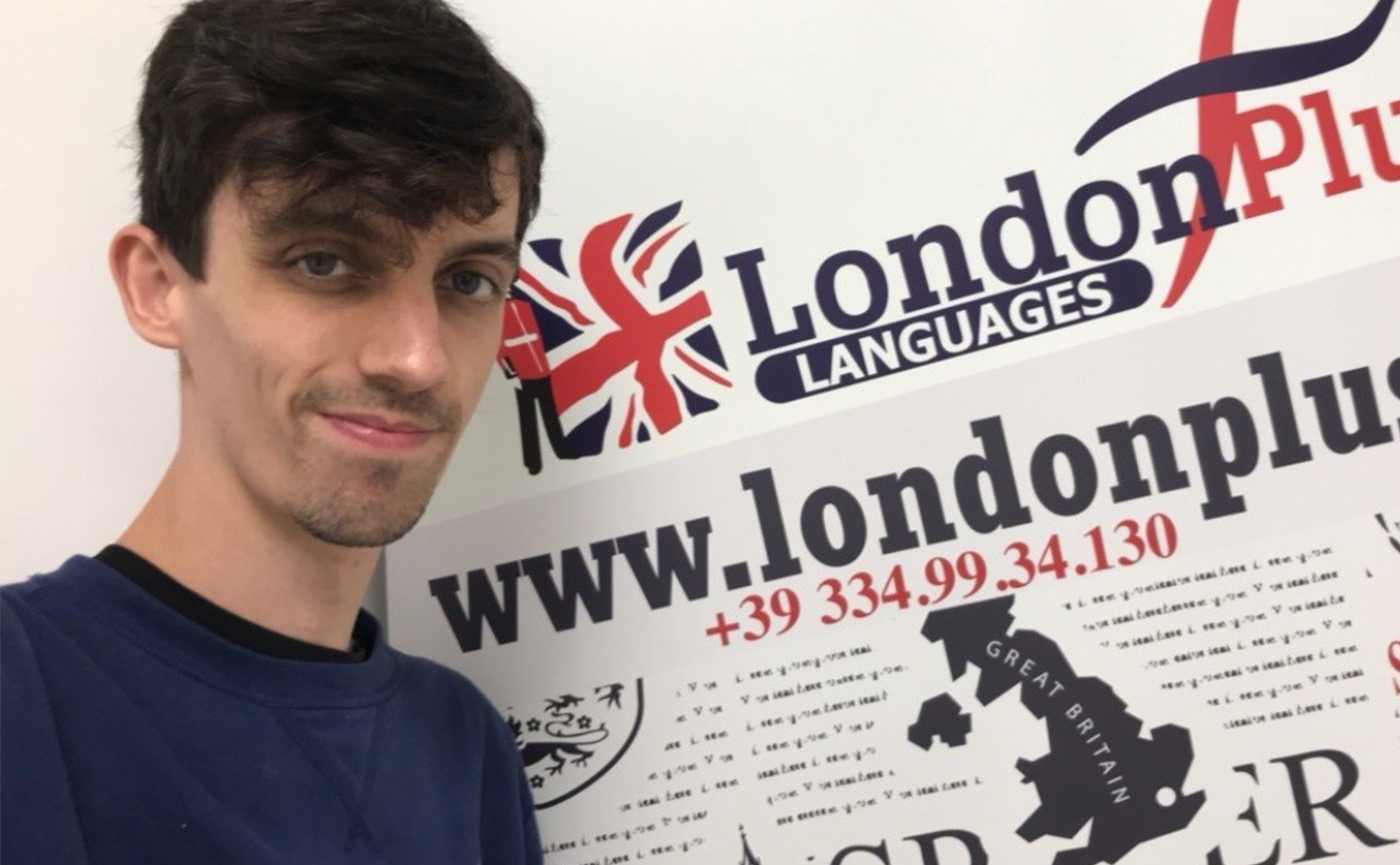BA (Hons) History and Creative Writing
Key information
-
Typical offer:
Entry requirements -
Fees: See below
Full details -
UCAS code: V1W1
-
Institute code: H36
-
Study abroad option
-
Work placement option
Find out more
Why choose this course?
- Join our award-winning Oral History Team (featured on BBC R4)
- Focus on your interests - All History modules optional after 1st year
- Be taught by award-winning poets, fiction and non-fiction writers
Are you interested in learning how past events helped shape today’s world? And do you enjoy writing stories, plays or non-fiction? This joint course allows you to do both. Studying History will teach you how human emotions, needs and desires act as political, social, and cultural catalysts for change. You can then apply this knowledge to your writing, whether you prefer fiction or non-fiction. This will make you a versatile writer, who is able to write in depth about the human psyche and how this underlies the changes we see in the world.
Your History lecturers take part in international research projects, working on the frontline of the latest development in the field. All your Creative Writing lecturers are active writers in their field, which means they have excellent links with the industry. One of them was the editor of Granta, a prestigious British publisher. You’ll benefit from up-to-date knowledge of the writing world, giving you the best chances to succeed. You can join up to 1500 competitions in prose, fiction, drama, and short stories.
Hertfordshire is one of the historic counties of England, known for its rich past, museums and market towns, steeped in history. St Albans, where the traditional hot cross buns are rumoured to have originated, is only a few miles away. You’ll be able to visit the St Albans Cathedral and the Hertfordshire Archives and Local Studies (HALS) are only a short drive away in Hertford. Hertfordshire is also known for its writers, including Geoffrey Chaucer and Beatrix Potter. In other words, it’s the perfect place to study both History and Creative Writing. Why choose if you can do both?
You’ll be able to join one of the few Oral History societies run by universities in the UK. This is an optional extra-curricular that is sure to make your CV stand out. You’ll go out and interview real people about the changes and events they have experienced in their own lives. Topics range from retirement to the history of football clubs, immigration and more. The point here is to not only capture factual information, but to allow your interviewee to express their feelings. What did they say? How did they feel? You’ll get a unique insight into real human experience, which will enrich your writing.
History was ranked in the top 25% of UK universities for research impact. (Research Excellence Framework, 2021).
What's the course about?
Creative Writing is more than just writing stories. It’s about learning how to engage your readers, how to capture their attention. It’s about how to communicate with others; to help them see the world through your eyes, while still giving them space to use their own views. You can use these skills in many fields and career paths, including communication, education and even business.
History is about learning to understand the modern world, to reflect on past events and their consequences. You’ll learn to interpret, analyse and critically evaluate historical accounts. You can look at British history, but also international history, including that of America. You’ll look at primary and secondary sources and learn about their reliability.
In your first year, you’ll explore a wide range of historical eras ranging from 1450 to 2000. You’ll take a module on the ‘historians’ toolkit,’ specially designed to help with the transition to university. For Creative Writing, you’ll take a module on ‘becoming a writer,’ where you’ll get hands on with writing different genres in two-hour workshops. You’ll also explore writing for the screen, building different worlds in fiction writing and more.
In your second year, all your modules are optional. This means you will be able to choose those modules that suit your interests best. You can choose to look at poetry, playwriting, or literature for Creative Writing. For History you can opt to learn how to make a historical documentary, which encompasses both subjects. You’ll be able to look at the British empire, crime in 16th to 18th century England, and much more.
Work placement/study abroad option: Between your second and final year, you’ll have the option to study abroad or do a work placement for up to a year. Not only will this give you an amazing experience to talk about but will also give your CV a boost. If you’d rather go straight to your final year, that’s fine too.
In your third year, you’ll really hone in on what you’ve learnt so far. Most of your modules will be workshop and seminar based, with complementary lectures where applicable. You can take on a History project, where you independently research an area of your choosing. You’ll also work on a Creative Writing project, which is the culmination of three years’ worth of studying. For your project you can either choose poetry or prose.
For a full overview of available modules, please see the section under ‘What will I study?’
Your main campus is College Lane
This is where the creative arts, science and health-related subjects are based. This means you’ll share the campus with future nurses, scientists, artists and more. You can use the common rooms to relax with friends, work out in the 24-hour gym or have a drink in our on-campus pub or cafes. We also have restaurants for you to eat in or grab something on the go. Our Learning Resources Centres are open 24/7, which means you can study whenever suits you best. Want to pop over to the other campus? You can take the free shuttle bus or walk there in just 15 minutes.
What will I study?
Degree programmes are structured into levels, 4, 5 and 6. These correspond to your first, second and third/final year of study. Below you can see what modules you’ll be studying in each.
Check out our student blogs

Student Blogs
Jasmine - Week at a glance
My week at a glance
History lessons are taught between a mixture of lectures and seminars for the first two years (Level four and five). A typical week would consist of one-hour lectures per module followed by a seminar, which could either be immediately after or on a different day. The seminars consist of smaller groups of people where you discuss both the lecture’s information and the assigned reading. These can be debates, presentations, or simple discussions. So, despite only having contact time for four hours per week, there are independent reading and assignments which need to be completed.
I start my week by completing the required reading, making notes of anything I do not understand so that I can ask my lecturer. After completing the weekly reading, I will work on the assignments. Even though they are mostly due at the end of the semester it is a good idea to work on them throughout, so you do not leave them until last minute.
I participated in active students, which is free for all Hertfordshire students. Here I would attend yoga classes, but there is a wide range of fitness and wellbeing events that take place. I also enjoyed badminton, as you could either go alone or with a group of friends. It is also a good idea to join society as it not only boosts your CV, but it is a way to meet likeminded people and develop friendships.
I also had a part-time job which I would do alongside studying. This means that planning is vital as you want to be on top of your workload to ensure you have enough time to complete it to the best of your ability. It worked well with the history course as most of the work was independent, meaning I could work around my other commitments.
It is important that you allow downtime alongside work as it recharges you and you can produce better quality work. It also prevents you from being overworked and ensures that you enjoy the course.

Student Blogs
Jasmine - Things you should know
Things you need to know before studying History at Herts
Preparation is key! Once you know what modules you are taking it is useful to do some research prior so that you can enter the module with basic knowledge. This makes studying it that much easier and you are less likely to be left behind. It prevents your workload from building up and be unbearable. History is a very independent course and will consist of quite a bit of reading, so you need to organise your time efficiently. Leave enough time to work on your assignments from the start so that if you have any issues you can get them sorted in time.
Complete the required reading as that way you will be able to contribute to the seminar discussions. Furthermore, if you stumble across words you are not familiar with or useful words it’s a good idea to make a keyword list and ask your lecturer if you are unsure of a specific concept. When completing the reading highlight important themes and produce short notes. Put them in your own words and as simple as possible, as it makes them easier to understand in the future. It is usually best to find a spot away from distractions and turn your phone off. Moreover, take regular short breaks, to allow what you have read to sink in.
Do not be afraid to talk to the lecturers, they are lovely and always willing to answer questions, especially on assignments. I found that discussing my drafts with lecturers before completing them allowed me to get high grades as they were able to point me in the right direction. They are there for you, so make sure you use them as much as possible.
Most importantly make sure you are having fun and enjoy yourself. Allow downtime so that you can recover and have the right amount of work/life balance.

Student Blogs
Jasmine - Why I love History
What I love most about my course
I loved that with history you could do as much or little as you wanted. Alongside completing the required tasks, lecturers indicated further reading sources if you wanted to. That meant to if there was a part of the subject that interested you, it was possible for you to explore it further. Moreover, most of my lecturers would ask at the start of the semester what we wanted to get from the course. This meant if there were specific areas that we were most fascinated with or wanted to learn, they aimed to include that into the module.
I also loved that there is a range of topics that are covered, and the ability to choose which ones you wanted. I minored in public history which meant that instead of the typical essay assignments I created a documentary for one module. Another module was work experience, so I got to volunteer. We also went on trips to the archives and Bayfordbury campus which offered alternative styles of learning and experiencing history outside the classroom. This was exciting as I got to try new things, which I would not have thought to do.
The humanities department was extremely inclusive. They have an Instagram and post regular events like rollerblading and film nights which allowed you to socialise with your lecturers and peers. The staff were all friendly and welcoming and always happy to help with any issues. I felt that they truly wanted me to succeed, and they had my back. The events helped to create a work/live balance.
Due to the independent nature of studying history, I was able to adapt to studying around my lifestyle. Because the contact time was only eight hours per week, I was able to work alongside studying. I was also able to study on the train journey or at home when I returned to visit family, meaning that I was not left behind on my workload.

Alumni Stories
Eleanor Pilcher
Meet Eleanor Pilcher who since graduating in 2016 has taken the publishing industry by storm. Eleanor currently works as a Marketing Manager at Avon, HarperCollins Publisher.
Read more stories Find out more about this course| Current job role | Marketing Manager |
|---|---|
| Year of graduation | 2016 |
| Course of study | BA (Hons) History and Creative Writing |

University experience and employability
Eleanor is a keen writer with great creative ambitions. During her degree she undertook a six-month internship at a literary agency in her final academic year. In 2016, shortly after her studies, Eleanor landed a placement at Penguin before getting a job in publishing recruitment. After developing her skills within the industry and amassing and impressive amount of knowledge and experience, Eleanor began her current role at HarperCollins Publishers.
Eleanor's degree encompassed a broad spectrum of critical, analytical and evaluative skills and helped shape her as a writer. Throughout her studies she had been writing a novel, which she submitted to literary agencies after being encouraged by her tutor to do so. It was Eleanor's passion for writing that uncovered her interest in working for a literary agency. Due to the fantastic lecturers on her course and the invaluable industry networks available to students, Eleanor managed to secure impressive opportunities in her chosen industry that have informed her career.
Sher recognises the impact the University has had on getting her to where she is today. 'For me the advice and feedback I received on both my History essays and Creative Writing finals was incredibly useful to my academic and professional development. I learnt to take criticism and to harness it and also write more because of it.'
Ambitions for the future
Eleanor has established herself in her chosen industry yet still has ambition to continue pursuing new goals. On her hopes for the future, she says: 'I hope to run a marketing department within a publishing company, possibly the one I'm at now. I hope to publish a novel and continue my freelance writing and public speaking on the side.'

Alumni Stories
Callaghan French
Meet Callaghan. Callaghan’s love of history inspired him to study at Herts and now he is teaching in Italy.
Read more stories BA (Hons) History| Current job role | English as a Second Language Teacher in Italy |
|---|---|
| Year of graduation | 2022 |
| Course of study | BA (Hons) History |

A love of history
Callaghan’s love of history started in primary school, and it stuck with him up until it was time to apply to university. He visited Herts for an open day and was impressed. He says, ‘Herts offers the opportunity to study a wide range of historical topics, they have a huge library, and extensive resources available to students. I also had a compulsory academic support module in the first year which was very helpful for my studies.’
His time at Herts was impacted by the COVID-19 pandemic, but one of Callaghan’s favourite moments was when he and fellow committee members were able to revive the History Society once restrictions were lifted. He says, ‘Working together to achieve this after such a tough period is an experience I will always value. I’d recommend that everyone join a society!’
Callaghan says that the most interesting part of his degree was his dissertation because he had the opportunity to research a topic of his choosing and present it to his lecturers and course mates.
Teaching in Italy
Callaghan is now a Teacher in Italy, where he teaches English as a Second Language. He says, ‘My course shaped me into a strong and confident speaker, which has greatly helped me in my current role. I was able to practice this skill in seminars and the occasional presentation.’
Callaghan is considering a career in academia or the Civil Service. His advice to current or future Herts students is to, ‘Work hard, but ask for help if you need it.’

